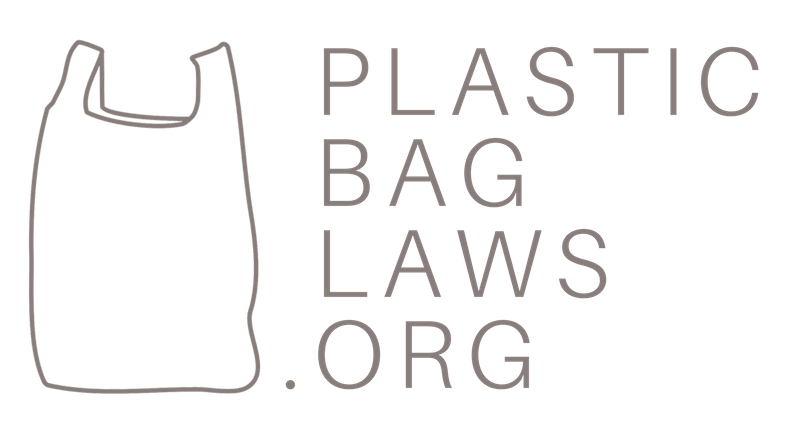Initial impressions from the Save the Plastic Bag Coalition v. City of Manhattan Beach Supreme Court oral argument
Yesterday, the California Supreme Court heard the long-awaited oral argument for the Save the Plastic Bag Coalition v. City of Manhattan Beach case. The questions presented were:
- Did an association of plastic bag manufacturers have standing to challenge a local ordinance banning the use of plastic bags?
- Did the trial court err in ruling the ordinance invalid for the failure to prepare an environmental impact report?
First, I must say that the amicus attorneys that argued for Manhattan Beach (from James Moose for Californians Against Waste and Christian Marsh for City of Manhattan Beach) did a great job. The Manhattan Beach city attorney left recently, so these attorneys stepped in to cover the oral argument.
Second, based on the questions asked and the reactions by the Justices, I am cautiously optimistic that Manhattan Beach has a good chance of prevailing.
On to some of the questions asked at the oral argument:
The first question, by Justice Kennard to Californians Against Waste (CAW), was whether the ordinance would increase paper bag use and therefore “waste”? Kennard seemed to feign confusion as to why CAW would be arguing in favor of the ordinance, which gave me the impression that she had put some thought into who the parties were. CAW answered that the ordinance was meant to increase the use of reusable bags, and therefore not increase paper bag “waste,” but that the second choice would be paper bags.
Madame Chief Justice then asked about the location of the ordinance – “Aren’t we only talking about Manhattan Beach?” CAW responded that, yes, the ordinance only covered Manhattan Beach and that the particularities of Manhattan Beach were taken into account in the record including information on the record regarding plastic bags clogging storm drains and littering beaches, as well as citizens testifying that they would bring reusable bags to the store. Since most of SPBC’s reports are general (even global) in scale, SPBC's material arguably deserved very little weight in Manhattan Beach's decision.
The questioning then surrounded whether the ordinance may have a “significant adverse effect on the environment” and how much detail was necessary in the initial study. For example, Justice Kennard asked whether it was necessary for Manhattan Beach to engage in a thorough and detailed analysis of trucks needed to deliver paper bags to stores and to dispose of the additional waste that increased use of paper bags might create.
Next was the question of standing. There are two ways to establish standing, the plaintiff must show that it is “beneficially interested” or that it qualifies under the “public interest” exception to the beneficial interest requirement.
League of California Cities (LCC) pointed out that SPBC did not assert a “beneficial interest” at the trial court or appellate level, and thereby conceded beneficial interest standing. The Court asked Mr. Joseph, counsel for Save the Plastic Bag Coalition (SPBC), whether SPBC had asserted beneficial interest standing and he responded “you’re testing my memory a bit too much your honor.” The Court was not amused. Regardless, the Court asked Mr. Joseph whether he was willing to concede beneficial interest standing, which resulted in much hemming and hawing. Part of Mr. Joseph's indecision was based on SPBC's assertion that SPBC was suing based on exposing “environmental truth,” not based on lost sales of plastic bags, and the beneficial interest the Court was asking whether SPBC asserted would have been commercial.
Mr. Joseph avoided answering that question, then insisted on skipping a few of the Justices' other questions to get to answer Justice Ming’s question regarding what the rule for standing should be. Mr. Joseph he stated his proposed rule as “Has the plaintiff served a useful purpose [under CEQA]?,” which led Justice Kennard to point out that there are two steps – standing then substantive issues. Mr. Joseph then restated his rule as “Give [standing] to organizations that sue on environmental grounds,” which lead Justice Baxter to ask (repeatedly) “Does that mean everyone has standing?” Mr. Joseph failed to articulate any additional requirements, so I think that it’s safe to assume that his proposed rule is DOA.
Mr. Joseph then attempted to address events that have happened since Manhattan Beach passed its ordinance, which lead Justice Werdegar to clarify the role of the Court, explaining basic principles of appellate review to Mr. Joseph. Justice Werdegar said the Court was charged with reviewing Manhattan Beach’s decision with the information in front of it when Manhattan Beach determined that the ordinance would have no significant environmental impact. She said that the Court’s role is to determine whether that decision was supported by substantial evidence and whether Manhattan Beach abused its discretion. Justice Werdegar also pointed out that Manhattan Beach could have found “some” (less than substantial) negative effect on the environmental and went forward.
Overall, the oral argument seemed positive for Manhattan Beach, but we won’t know for sure until the opinion is released (up to 90 days from yesterday).
Additionally, even if SPBC “wins” here, the Court will most likely provide guidance as to the standard for CEQA-related documents required for such ordinances.
